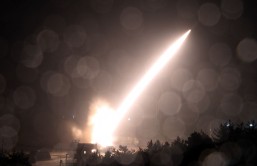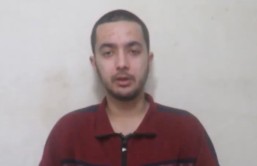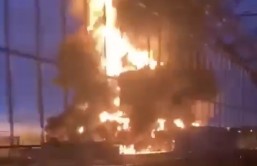Fresh new airstrikes and humanitarian airdrops were authorized by President Barack Obama in the Iraqi Shi'ite town of Amerli, where Islamic State militants had trapped the civilian population, over the weekend, Reuters reported. The U.S. Congress was formally notified on Monday.
On Sunday, Iraqi security forces backed by Shi'ite militias broke the two-month siege of Amerli and entered the northern town, just after the U.S. military carried out air strikes on militant positions and delivered emergency supplies to residents there.
The operation was launched on Saturday under the long-standing War Power Resolution, which gives presidents authorization for temporary military action, Obama said in a letter notifying congressional leaders and Congress of his decision.
The U.S. military role in Iraq has been broadened amid an international outcry over the threat to the town's mostly ethnic Turkmen population from Sunni militants, according to Reuters. But Obama said "targeted" air strikes had been needed to deliver humanitarian assistance there and that the operations would be "limited in their scope and duration" as required by the situation on the ground.
Back in early August, when the first air strikes and airdrops were ordered in Iraq by Obama, he justified the military operation in part to prevent a humanitarian catastrophe for thousands of ethnic Yazidis trapped by Islamic State militants on Sinjar Mountain in northern Iraq.
White House National Security Council spokeswoman Caitlin Hayden described the aim of the Amerli operation as "consistent with the military missions we have outlined to date in Iraq - to protect U.S. personnel and facilities and to address the humanitarian situation on the ground."
Meanwhile, "Obama has faced criticism from lawmakers from both parties for what many see as indecisiveness in confronting Islamic State, which has taken over swathes of Iraq and Syria, and for not consulting them more on the issue," according to Reuters. "Republicans seized on Obama's comment on Thursday that 'we don't have a strategy yet' for dealing with Islamic State."








